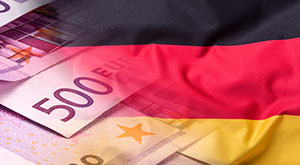Finding Accommodation in Germany
Despite the Euro zone problems, the German economy has remained relatively stable. Although the major metropolitan areas in Germany are more expensive than smaller towns and rural areas, compared to other major European destinations German cities are fairly cheap to live in. Western areas are usually more expensive than the east of the country, but as there are usually better job prospects in the west the difference is not keenly felt. Salaries are considered generous, particularly for skilled expats, and everyday costs like rent and groceries are comparatively low.
There are no restrictions on foreign nationals buying property in Germany. However, it can be difficult to get a mortgage and the taxes and charges associated with purchase, including property transfer tax, notary fees, registration fees and estate agent's fees, are quite high. As a result, rental accommodation remains the most popular option for expats in Germany. Tenants enjoy considerable legal rights including rent caps and protection against eviction. However, the initial outlay for renting can be costly. As well as the deposit to your landlord, you may have to pay estate agent fees of up to three months’ rent plus tax. Initial rental periods may be up to two years, so unless you are sure you will remain in Germany long-term it may be worth considering a shared apartment or student accommodation as a shorter-term alternative.
Rental deposits are typically one to two months’ rent plus tax in Germany, although legally landlords can request up to three. However, the landlord is responsible for ensuring you receive due interest on this money, so many ask you to put the deposit in a joint account accessible to both parties.
Property owners in Germany must pay local taxes known as Grundsteuer. The rate is determined by the value of the property, but the actual charges vary between municipalities.
Utilities in Germany are normally charged by measured consumption. The cost of energy – and electricity in particular – is amongst the highest in Europe. The easiest option is to register with the local municipal supplier in your area, however in some regions it may be possible to find a cheaper alternative with a competitor if you use a price comparison website to find the best tariff. Telephone and internet provision is a more competitive sector and there are plenty of good deals around.
Germany operates a licensing model to help fund public free-to-air television and radio services. All households must pay a licence fee of around €200.00, although certain demographics are eligible for discounts. Paid satellite TV options are also available.
Max Saved Jobs Reached
A maximum of 500 Saved Jobs can be created against your account. Please remove an existing Saved Job in order to add a new Saved Job.
Manage Saved Jobs









